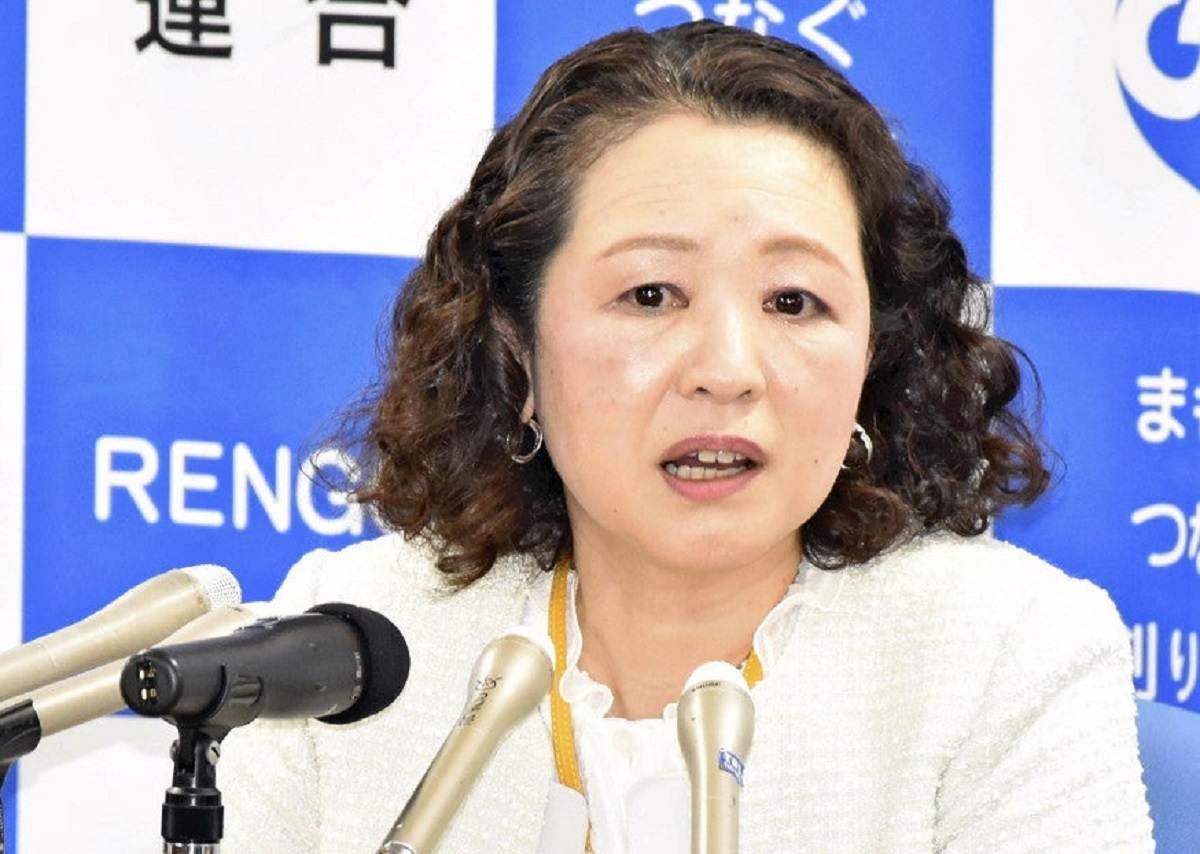
Rengo chief Tomoko Yoshino
11:12 JST, March 18, 2023
TOKYO (Reuters) — Japan’s major companies have concluded their annual labor talks with average wage hikes of 3.8% for the coming fiscal year, the largest raise in about three decades, trade union confederation Rengo said on Friday.
The preliminary survey of 805 unions affiliated with Rengo showed the average hike rate of \11,844 ($89) per month, according to the labor organization.
While changes in the way the survey is conducted make it difficult to compare with historical data before 2013, this is the first average pay hike of more than 3% since 1994, Rengo officials told a news conference on the spring wage talks.
Many unions received in full or exceeded their demand for wage hikes, Rengo chief Tomoko Yoshino told a news conference.
She added that consumer price rises had hit workers hard and companies had responded in a “gentle and meaningful manner” to unions’ requests on pay hikes.
Prime Minister Fumio Kishida has called for higher wages to offset rising living costs, stepping up his call as a weak yen currency and higher commodities prices have driven up import costs, sending inflation to its highest in four decades.
While Japan’s top firms concluded the talks on Wednesday, wage negotiations will get into full swing at small and medium enterprises from April to June.
Rengo, also known as the largest Japanese Trade Union Confederation, will update the pay negotiation results in several stages before compiling the final results in summer.
Japanese salaries have been virtually unchanged since the late 1990s and are now well behind the average for the OECD grouping of rich countries.
While Japan’s biggest corporations — including Toyota Motor Corp. and Hitachi Ltd.- have agreed to the requested increases from unions, the outlook looks less positive for workers at smaller companies — which make up almost 70% of Japan’s workforce.
Those businesses have often struggled to pass on rising costs to their customers. It’s unclear whether the rising wage trend will be sustainable, let alone create the “virtuous cycle” of stronger economic growth and 2% inflation long sought by Japan’s central bank.
Top Articles in News Services
-

Survey Shows False Election Info Perceived as True
-

Hong Kong Ex-Publisher Jimmy Lai’s Sentence Raises International Outcry as China Defends It
-

Japan’s Nikkei Stock Average Touches 58,000 as Yen, Jgbs Rally on Election Fallout (UPDATE 1)
-

Japan’s Nikkei Stock Average Falls as US-Iran Tensions Unsettle Investors (UPDATE 1)
-

Trump Names Former Federal Reserve Governor Warsh as the Next Fed Chair, Replacing Powell
JN ACCESS RANKING
-

Producer Behind Pop Group XG Arrested for Cocaine Possession
-

Japan PM Takaichi’s Cabinet Resigns en Masse
-

Man Infected with Measles Reportedly Dined at Restaurant in Tokyo Station
-

Israeli Ambassador to Japan Speaks about Japan’s Role in the Reconstruction of Gaza
-

Videos Plagiarized, Reposted with False Subtitles Claiming ‘Ryukyu Belongs to China’; Anti-China False Information Also Posted in Japan
























